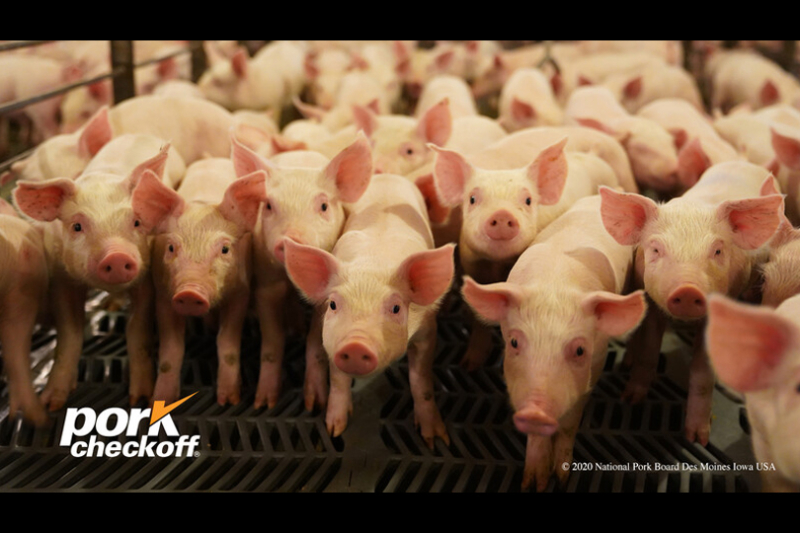By Jessica Domel
Multimedia Reporter
Pork producers from across the nation met with lawmakers to discuss the farm bill, labor, trade and California’s Proposition 12.
“We need a farm bill now. We don’t need to be talking about extensions. We need to be talking about how to get a farm bill done in 2024,” Bryan Humphries, National Pork Producers Council (NPPC) CEO, said. “As part of that, we need a legislative fix to California Prop 12, resolutions to the labor shortage and an active trade agenda that opens doors worldwide.”
Like Texas Farm Bureau (TFB), NPPC is pushing for a new farm bill rather than another extension to provide the stability farmers, ranchers and dairymen need.
“We need to have a farm bill done this year. It addresses Prop 12 and a legislative fix to that potential patchwork of 48 states having different regulations, which would be detrimental to our industry,” Lori Stevermer, NPPC board president and Minnesota pork producer, said. “I’m saying, ‘leaders do your job. We elected Congress to work on our behalf on a farm bill. And I know it’s hard, but we elect you to do the hard things.’ We appreciate the work that the House has done on their version of the Farm Bill and now we’re simply asking the Senate to do the same thing.”
NPPC said it’s also imperative that Proposition 12 be addressed.
Proposition 12 requires that any pork products sold in California be raised according to that state’s standards regardless of where the pork is raised.
NPPC reports that in this economy, most pork producers cannot afford the millions of dollars it would cost to build a new sow barn or retrofit one to be in compliance with Californian law.
Not selling in California can be difficult for pork raisers as the California market is 40 million people who consume nearly 15% of all pork sold domestically.
To complicate matters, Massachusetts has what they call Question 3. It bans the sale of pork that does not meet their sow housing requirements regardless of where it was produced.
“What happens if the next state makes a change and puts something in? Then we, as producers, are constantly making changes to that patchwork. That uncertainty is what’s really weighing on people’s minds,” Stevermer said. “Not just us as producers are affected. We predicted that pork prices would be affected in California, and the USDA chief economist has verified that. Pork prices are up, on average, 20% since Prop 12 went into place, and the supply is down about 20%.”
Rob Brenneman, NPPC’s vice president and pork producer from Iowa, said a patchwork of rules like Prop 12 that vary by state is not efficient for pork producers as some states may require pens of one size while another state requires a different size.
“We can’t have 48 different ways we raise pigs. It will not be efficient. The reason had no scientific justification behind it,” Brenneman said. “I think, as a pork producer, that they need to get the farm bill fixed, so we don’t have 48 more different things.”
Stevermer said that’s why NPPC is asking for a federal pre-emption to Prop 12.
“The Supreme Court said that Congress has the authority to assert its interstate commerce power. That’s what we’re asking as a federal preemption so one state does not tell another state how to raise their pigs, but handles the matters within their own state, which that’s what we do in Minnesota. We watch out for ourselves,” Stevermer said.
The version of the farm bill that was passed out of the House Agriculture Committee in May addresses Proposition 12.
According to documents from the House Ag Committee, the House’s draft farm bill, if passed, would clarify that “states and governments cannot impose, directly or indirectly, as a condition for sale or consumption, a condition or standard on the production of covered livestock unless the livestock is physically located within such state or local government.”
Senate Agriculture Committee leadership have released frameworks for a farm bill but have not yet released a bill text.
The current one-year extension of the 2018 Farm Bill expires at the end of September.


Leave A Comment